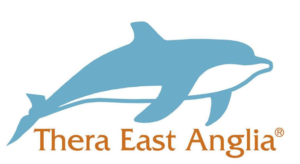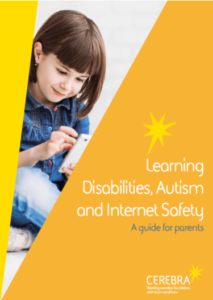Online activities and e-safety
Online activities
Gaming
 Many children with SEND, especially Autism, can be strongly drawn to online gaming and activities. Here are some suggestions:
Many children with SEND, especially Autism, can be strongly drawn to online gaming and activities. Here are some suggestions:
Spectrum Minecraft – secure Minecraft Servers for Children with Autism and additional needs.
Autcraft – the first dedicated Minecraft server for children and adults with autism and their families.
MindJam – offers emotional support for children & adolescents through gaming and game design.
Cyber Sprinters – free online game for 7 – 11 year olds to teach them about the importance of online safety. Developed by the National Cyber Security Centre and designed to make learning about cyber security fun and interactive.
Getting online with a games console
Did you know you can use a games console to access remote learning? Using Xbox or PlayStation to access Hwb
E-safety: keeping your children safe online
Here we share some good sites to visit if you want to get up to speed with online safety and how to help your child or young person with additional needs or disability protect themselves online and on social media.
Cyberbullying
Disabled children and those with special educational needs are more likely to experience cyberbullying, less likely to be able to use the internet and less likely to have support to use the internet.
The Department for Education has produced updated (July 2017) advice for parents on cyberbullying. It provides advice and information about how to protect their child or young person from cyberbullying and how to tackle it if it happens.
The Anti-Bullying Alliance have a number of resources designed to help you understand and respond to the particular challenges presented by online bullying in all its forms. Their online bullying resources can be found here.
Learning Disabilities, Autism and Internet Safety
Tech it Out – Staying safe on the internet
 An easy-read guide from Thera East Anglia about how to stay safe online whilst using the internet and social media.
An easy-read guide from Thera East Anglia about how to stay safe online whilst using the internet and social media.
A guide for parents from Cerebra
 This useful guide, from charity Cerebra, is for parents with children and young people with learning disabilities and autism. It covers a range of topics including:
This useful guide, from charity Cerebra, is for parents with children and young people with learning disabilities and autism. It covers a range of topics including:
- how to make your home and mobile internet safe
- dealing with cyberbullying
- privacy and preventing grooming
- antisocial behaviour and criminal activity
- spending money online
- social networks and access to peer support
Other useful online safety sites
The Foundation for People with Learning Disabilities
This staying safe online guide is full of useful, easy-to-understand tips and checklists and pictures. It includes step-by-step help on how to get started on social media sites such as Twitter and Facebook and how to write a safe profile, as well as using Skype and email – and what to do if things go wrong, such as blocking users or reporting abuse. There’s also a section on web cameras.
The Child Exploitation and Online Protection Centre (CEOP)
Like to be a better online parent? CEOP’s website www.thinkuknow has lots of resources for parents and carers and teachers as well as for children, starting with 4-7 year olds up to young people aged 14+. The resource section can be searched by age and whether it’s aimed at supporting SEND, with films, cartoons and presentations to help get the online safety message across.
There are tips for how to talk to your children about what they are doing online, the risks they face, plus information on the tools available to keep them safe. The website also covers the rise of selfies – and sharing revealing photos or videos – and how to get help and support.
NSPCC and Ambitious about Autism
NSPCC have partnered with Ambitious about Autism to bring online safety tips, advice and activities specifically for parents and carers of children with SEND. You can find them here.
Cyber Sprinters
Free online game for 7 – 11 year olds to teach them about the importance of online safety. Developed by the National Cyber Security Centre and designed to make learning about cyber security fun and interactive. Find out more here.
Google families
This website has lots of useful information about e-safety for children and young people.
